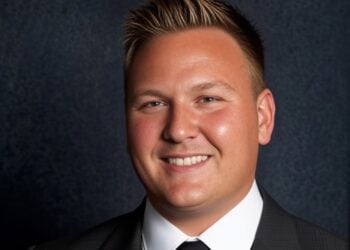When Albert Nduli was behind on his car payment, a tow truck attempted to repossess his car. He was run over by the tow truck as his wife and daughter watched in horror. In Dallas, Texas, James Smith was run over and killed by a tow truck when his car was being towed for improper parking. He died in the arms of his twin brother in the parking lot where they shared an apartment.
In both these cases, Mark Lacek was called upon to serve as an expert witness. We sat down with him to discuss his career and how he came to be the go-to expert in repossession and towing.
AALM: How did you come to work in the repossession industry?
ML: In the late 1970s, I worked as a tow truck driver. During those years, I learned how to drive and operate light, medium and heavy-duty tow trucks. On occasion, Paul Simpson the owner of a local repossession company would call for a tow truck and my boss would send me. Simpson and I got to know each other, so during the slow towing months I would work with Simpson repossessing cars.
AALM: Tell us about your career including the trade magazine you started.
ML: In 1989, after several jobs in the towing and repossessing industry, I married my best friend, Debbie, and we decided to move to Florida. We opened our first repossession company, MDL & Associates (MDL was short for Mark & Debbie Lacek). My wife had a background in accounting and with my knowledge of trucks and autos, we made a great team.
We both became involved in the Florida repossession association where we eventually held several board positions. Deb was asked to create the association newsletter which became an enormous success. It became clear that the repossession industry needed a voice. Soon, Professional Repossession Magazine (PRM), a national magazine, was born.
We published the monthly from January 1997 until June 2004. PRM was a tremendous success. During these years, Deb and I operated our repossession company, held board positions on the Florida repossession association and published the monthly magazine.
Debbie absolutely deserves the credit for the duties required to publish a magazine. Deb was in charge of layout, design and managing the office while I brought in writers and attended industry conferences. I also repossessed autos, trucks, and equipment full time.
AALM: You were engaged to write a repossession certification training program. Tell us about the course.
ML: In about 1999 the Recovery Industry Services Company (RISC) asked if I would author a repossession certification program. RISC is a training and certification platform for the repossession industry. I wrote the Certified Commercial Recovery Agent certification course (CCRA), which is still available today on the RISCUS.COM platform.
AALM: When did you first serve as an expert witness?
ML: In 2011, I was well known in the repossession industry. I was the president of a repossession association, publisher of the industry magazine and the owner of a large repossession agency. I received a call from the law firm representing Ford Motor Credit. I was asked to offer my opinions on a case involving a consumer’s death during a repossession. At the time, I had no idea my experience and knowledge of the industry would be helpful in repossession litigation.
AALM: Of the cases you’ve worked on, are there any that have stood out to you?
ML: I was recently retained and accepted as the repossession expert by the Department of Justice on a criminal case involving a repossession. It was quite an honor to be recognized by the DOJ for my knowledge and experience.
I was also retained in a wrongful repossession case in Wisconsin. The case went through the appeals process up to the Wisconsin Supreme Court. Although my involvement as the repossession expert was a small part of the case, the Wisconsin Supreme Court agreed with my written opinions in their majority decision.
AALM: How would you describe your approach to your work as an expert witness?
ML: I am the only repossession expert with practical experience in the towing industry, and the only towing expert with experience in the repossession industry. This provides me with the experience to be retained in both repossession and towing litigation.
My approach as an expert is to review all the case documents and learn the facts. During an expert witness seminar, a federal judge reminded me that I am not on the side of the defense or the plaintiffs’ attorneys. I’m offering opinions based on my knowledge of professional industry standards and how that relates to the case at hand. I am not fighting for a client’s best interests. My role is simply to educate judges, jurors, as well as the attorneys.
AALM: What are some of the trends you’re seeing in recent cases? What problems do you believe will continue to arise in litigation in the future?
ML: Repossessors are failing to discontinue the repossession process when the consumer objects to the repossession. It is the court’s duty to decide if there was a breach of peace.
In tow truck litigation, most cases are decided based on the tow operators training and certification or the lack thereof. A troubling pattern has emerged in the repossession and towing industries—owners are increasingly placing newly hired, untrained and uncertified employees behind the wheel of tow trucks. In addition, many companies are neglecting regular, scheduled safety meetings, further compromising workplace safety standards.
Previously, repossession fees covered multiple visits to ensure safe, non-confrontational repossessions. Now, increased costs and issues like higher insurance and LPR limitations make confrontations with consumers more likely—often leading to litigation.
AALM: Is there anything else you’d like to add?
ML: As an expert in the repossession and towing industry, my work is focused on consumer safety through employee certification and training. Employers who fail to license, train and certify their repossessors and tow operators are a danger to consumers. Non-qualified “Repo Thugs” are cruising our streets every day and night violating the rights of the consumer. My work highlights professional standards in the industries, and—I like to think—helps protect consumers from these “bad actors.”
For more information, visit marklacekexpertwitness.com.








